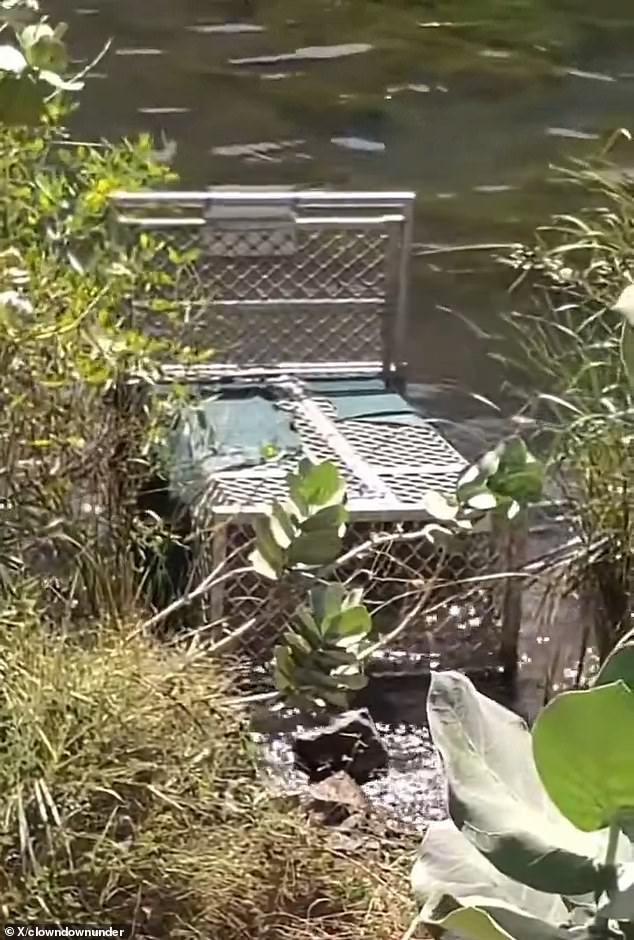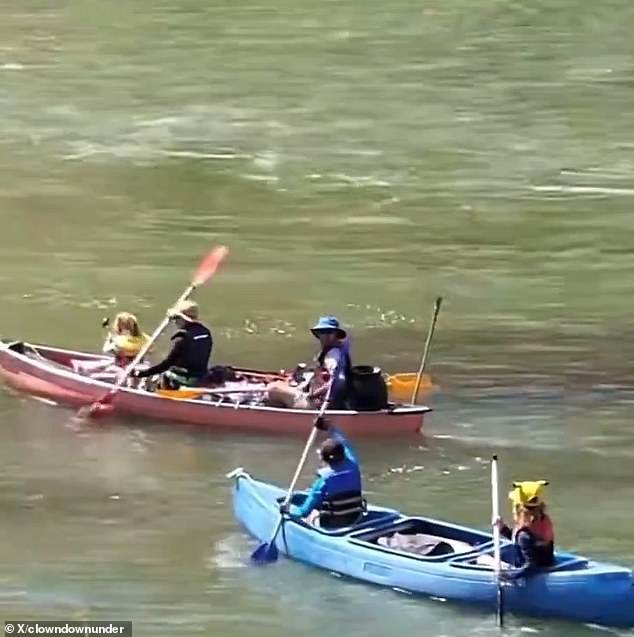Lake Argyle Dam: Terrifying detail in footage of a family canoeing in a picturesque river
An Australian woman has captured a chilling photo of the deadly dangers of a seemingly family-friendly waterway.
She filmed a group of parents and children in canoes and on stand-up paddleboards at the base of the Lake Argyle Dam on the border of Western Australia and the Northern Territory.
The families seemed unaware that there was a crocodile trap just metres away from them on the riverbank.
“We have a nice canoe trip down the river… and there’s a crocodile trap,” the woman said in a video posted to X.
‘Oh look at the children! Lovely, juicy children.
“Australia, come down (and) have a great holiday. We don’t give a damn.”
Many viewers were shocked to see how nonchalantly the families handled being in open water, among potentially deadly crocodiles.
One said the video was a “brilliant tourism advert for Australia”, while a second questioned whether the woman was “aware that crocodiles walk on land too”.
A woman saw families canoeing at the base of the Lake Argyle Dam
Another pointed out that it is relatively safe to swim in Lake Argyle because it is a freshwater system and is home to mainly freshwater crocodiles, which are ‘less aggressive and smaller’.
The lake is home to the world’s largest population of Johnston River crocodiles, also known as the Australian freshwater crocodile.
This species is more shy than its saltwater counterparts and eats mainly insects and fish.
Adult crocodiles often prey on wallabies and waterfowl.
However, they are known to be shy and are generally not considered dangerous to humans unless they become excited.
Locals often swim in the lake without looking for crocodiles.
Every year on the first Saturday in May a Lake Argyle Swim is held.

The family enjoyed a day on the water, just metres away from a crocodile trap (pictured)

The groups were seen canoeing in the water several meters away
Swimming in the lake is ‘at your own risk’ after authorities euthanised a 2.5-metre freshwater crocodile in 2022 after it bit a woman in the lake.
Tourists are warned not to camp or swim along remote shorelines as crocodiles may defend their nests or sunbathing areas.
Although the lake is mainly populated by freshwater crocodiles, visitors should also beware of saltwater crocodiles, which like to enter the lake after rainfall.
